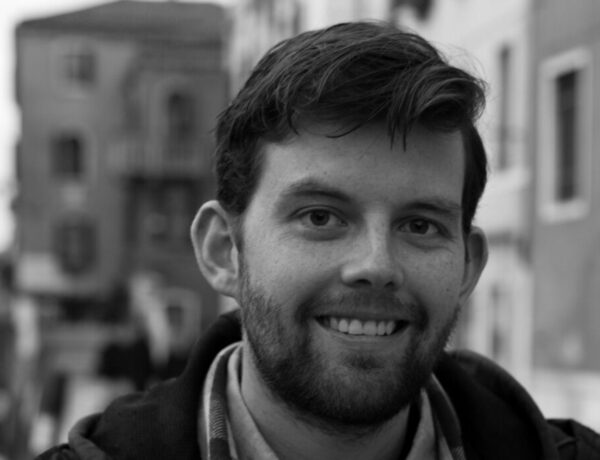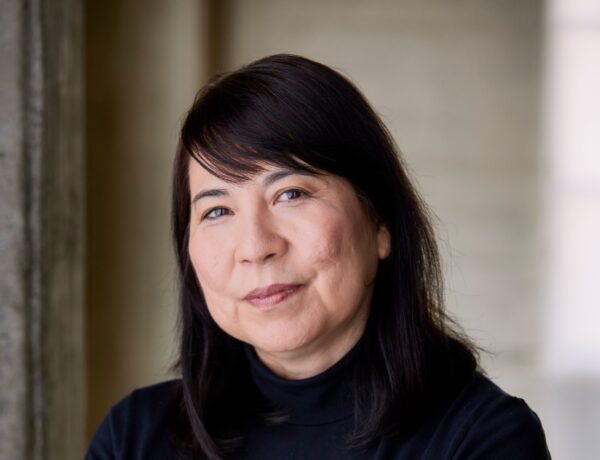Jeanna Kadlec is a writer and astrologer, with a diverse career background which includes owning a lingerie boutique and working in academia.
Her writing has been featured in a variety of prominent publications, including Elle, Nylon, O the Oprah Magazine, Allure, Catapult, Literary Hub, Autostraddle, and more. A native of the Midwest, she now calls Brooklyn home and has recently released her debut book, Heretic: A Memoir, through HarperCollins.
Each week, we publish a new daily writing routine from a famous author. Subscribe to our newsletter so you don’t miss out!
Hi Jeanna! We’re delighted to have you as a guest on Famous Writing Routines. For our readers who may not be familiar with your work, could you please give us a brief introduction to yourself?
I’m a writer and an astrologer. I’m a born and bred Midwesterner, but I’ve lived on the East Coast between Boston and NYC for more than 12 years now. My first book, Heretic: A Memoir, came out last October with HarperCollins.
How do your experiences as a former academic and lingerie boutique owner inform your writing?
I’ve been writing since I was a kid, but those were very formative experiences. My time in academia gave me such a solid foundation in research and citation, but also formalized my voice in a stiff way that I am slowly getting out of my system. And when I started the lingerie boutique, which was the first-ever boutique in the US dedicated solely to the LGBTQIA+ community, I ran a very popular blog that taught me a lot about writing inclusively. But the incredibly valuable lesson there was that I couldn’t anticipate everyone’s needs in the community, and that doing so would always be impossible.
Can you describe your writing routine and how you maintain focus and productivity?
When I have a project, I write every day. Morning is when I’m at my best; I’m very sharp and very sensitive in the morning. Afternoons are for wrap-ups and admin and any editing that has to be done. But that isn’t my life right now!
At this moment, I am not writing (unless you count journaling, and my newsletter, astrology for writers). My first book came out two months ago, so I just had this exhilarating, huge period of output and press. But there is an inevitable crash after such a period. I was warned about it well in advance by other author friends, but it definitely still hit with a force.
I have a few projects that are backburnering, largely because of the Harper Union strike (donate to the strike fund here). But honestly, the quiet has been good. I’m playing a lot of video games (so much Fortnite). I think it’s good to talk publicly about the essential periods of rest. Creativity comes in seasons, and I am in autumn right now, after a really, really beautiful peak. I don’t think heavy production and output is sustainable without intensive periods of retreat and rest.
Discover the daily writing habits of authors like Stephen King, Neil Gaiman, and Gillian Flynn with Famous Writing Routines Vol. 1 and learn how to take your writing to the next level. Grab your copy today!
How do you handle writer’s block or moments of creative stagnation in your process?
I don’t believe in writer’s block; to me, it feels like a very capitalist invention, like you’re a writing machine that is broken and needs to be fixed on a certain timeline. Bullshit. Getting stuck is a normal part of the process in a long-term project.
When that happens — not if, when that happens — I need to slow down and listen. I take a few days, or even a few weeks, away from the book. I take myself on at least one creative date (usually to a museum — walking “The Dinner Party” at the Brooklyn Museum or going up to the Met to sit with Kiki Smith’s “Lilith” for a while), to just get myself out of my head and more into my body, soaking up other art. Talking it out with my partner or my writers’ group almost always helps me untangle the knot.
The work goes at its own pace. It can’t be pushed.
Can you talk about any specific tools or methods you use to generate new ideas or inspiration for your writing?
I’m a New Moon baby, and I’m always bursting with new ideas. I think the only trick is a simple one, which is just paying attention. Having some kind of practice where your mind is centered enough that you can catch the racing thoughts. I’ve learned to always have a journal and pen on me, or else I’ll forget what I dreamed about, or was thinking about on the train. I panic if I leave the house without a notebook; typing a note into my phone doesn’t have quite the same feel.
How do you balance the need for editing and revising with allowing your creative flow to take shape in the moment?
I cannot edit as I go. If I edit while I’m still drafting, I will perfect and perfect and perfect and never let the grubby thing out of my hands. So I’ve learned to treat the first draft as a reckless, wild thing that’s just for me. As a memoirist, I also have to repeat to myself that no one else is going to see this!
That’s something my students get hung up on a lot: the worry of what their loved ones will think of their work. But you can’t write honestly while your parents or your ex or whoever is looking over your shoulder — something I still have to remind myself of. The only way to get my heart on the page is to write that first draft for myself, without any legal read or editor in mind.
For Heretic, I built in a six-week break between finishing the full and then going into revisions with Jenny, my editor. I really needed that separation to emotionally settle and be able to get more perspective on the narrative I’d just crafted. By the time the break was up, I was ready to rip it to shreds and do some serious rewriting.
Can you share any tips or advice you have for other writers looking to develop and strengthen their own writing routine and creative process?
It’s so tempting to think that routine means “daily,” but it doesn’t have to. Writing once a month is a routine. Writing on the weekends is a routine. Writing when you have a project, and then taking breaks, is a routine! Don’t fall for the trap that you simply must write 365 days a year or else you’re not a “real” writer, or you’re not writing “enough.” That’s total bullshit. If you’re making an effort to write at all in your otherwise extraordinarily busy life, you are writing enough.
What does your writing workspace look like?
My girlfriend and I are both writers, and are both self-employed, so we share an office here in our Brooklyn apartment. I usually go back and forth between writing at the white desk in the office, which overlooks the street, and writing at the bar table in the kitchen, but right now, I’m writing this on our pink velvet couch. Which proves the point: write wherever you can, whenever you can grab a spare minute.
Affiliate disclaimer: Some links on this website are affiliate links. We may earn a small commission if you make a purchase through these links, but only promote products we truly believe in. We disclose affiliate links and give honest reviews.



No Comments